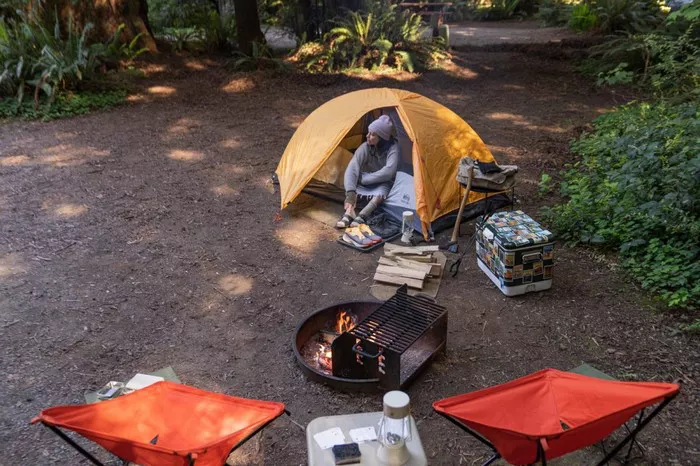Camping amidst nature’s beauty can be a rejuvenating experience, but pesky mosquitoes can quickly turn it into a nightmare. These tiny bloodsuckers not only cause discomfort but also pose health risks due to the diseases they may carry. However, with the right strategies, you can enjoy your outdoor adventures mosquito-free. In this guide, we’ll explore various methods to repel mosquitoes effectively while camping, from different types of repellents to practical tips and safety precautions.
Different Types of Mosquito Repellents
Mosquito repellents come in various forms, each with its own set of pros and cons. Understanding these options can help you choose the most suitable repellent for your camping trip.
1. Chemical Repellents:
Chemical repellents are widely available and often considered the most effective in repelling mosquitoes. The most common chemical repellents include DEET (N,N-diethyl-meta-toluamide) and picaridin. DEET is highly effective against a wide range of insects and provides long-lasting protection. However, some people may experience skin irritation or other adverse reactions with prolonged use. Picaridin is another effective alternative with fewer reported side effects than DEET. Both DEET and picaridin are EPA-approved and considered safe when used as directed.
2. Natural Repellents:
For those seeking alternatives to chemical repellents, natural options are available. Ingredients like citronella, lemon eucalyptus oil, and essential oil blends are known for their mosquito-repelling properties. While natural repellents may be gentler on the skin and environment, they often provide shorter protection durations and may require more frequent reapplication compared to chemical counterparts. Additionally, their effectiveness can vary depending on factors such as concentration and formulation.
3. DIY Repellents:
If you prefer to avoid commercial products, you can create your own mosquito repellents using natural ingredients. Common DIY repellent recipes include combinations of essential oils like citronella, lavender, and tea tree oil diluted in a carrier oil such as coconut or olive oil. While DIY repellents offer a cost-effective and customizable option, their efficacy may not be as consistent as commercially available products.
Application Methods
Regardless of the type of repellent you choose, proper application is crucial for effectiveness. Follow these guidelines to apply mosquito repellents safely and efficiently:
- Apply repellents evenly to exposed skin surfaces, avoiding contact with eyes, mouth, and open wounds.
- Reapply repellents as directed, especially after swimming, sweating, or extended outdoor activities.
- When using sunscreen and repellent simultaneously, apply sunscreen first, followed by repellent.
- Wash off repellents thoroughly upon returning indoors, particularly before bedtime.
Additional Mosquito Control Measures
In addition to using repellents, implementing other mosquito control measures can further reduce your risk of bites while camping:
1. Campsite Selection:
Choose campsites away from stagnant water sources, which serve as breeding grounds for mosquitoes. Opt for areas with good airflow and minimal vegetation to minimize mosquito activity.
2. Campsite Management:
Keep your campsite clean and free of food debris, as leftover food can attract mosquitoes and other pests. Dispose of trash properly and seal food containers tightly to deter insects.
3. Physical Barriers:
Use mosquito nets, screens, and appropriate clothing to create physical barriers against mosquitoes. Invest in a quality mosquito net for sleeping areas and consider wearing long sleeves, pants, and socks to minimize exposed skin.
4. Campfire Smoke:
While campfire smoke may provide some temporary relief from mosquitoes, its effectiveness can vary depending on factors such as wind direction and intensity. Use campfires in conjunction with other repellent methods for added protection, but be mindful of smoke inhalation and potential health risks.
Safety Precautions
When using mosquito repellents, especially around children and pregnant women, it’s essential to prioritize safety:
- Read and follow product instructions carefully, including age restrictions and application guidelines.
- Avoid applying repellents to young children’s hands to prevent accidental ingestion.
- Use lower concentrations of repellents for children and consider alternative repellent options for pregnant or breastfeeding individuals.
- If adverse reactions occur, discontinue use immediately and seek medical attention if necessary.
Additional Tips and Tricks
In addition to the above strategies, consider the following tips to enhance your mosquito protection while camping:
- Use portable fans to create airflow and discourage mosquitoes from landing on you.
- Avoid outdoor activities during peak mosquito hours, typically dawn and dusk.
- Wear light-colored clothing, as mosquitoes are attracted to dark colors.
- Incorporate natural mosquito deterrents into your campsite, such as planting mosquito-repelling plants like citronella or basil.
Conclusion
By combining these methods and precautions, you can significantly reduce your risk of mosquito bites and enjoy a more comfortable camping experience amidst nature’s wonders. Remember to stay vigilant, especially in mosquito-prone areas, and adapt your strategies accordingly for optimal protection.

